SUMMARY
VENOM: None
PREVALENCE: Common
ACTIVE PERIOD: Fossorial
KEY ID FEATURES: Dark grey body with small pointed tail that acts as a decoy for the head, yellow/orange dots on either side of the neck, iridescent shine on the body
BEHAVIOR: Completely fossorial only coming out during heaviy rain or when moving across locations not suitable for burrowing
SIZE: Very small - <10cm
QUICK ASSESSMENT 0-10
GALLERY
IMPORTANT: Many snakes have significant variance in coloration and pattern even within the same species. There can also be extreme differences in appearance from juveniles to adults so it is important to never assume you have properly identified a snake.
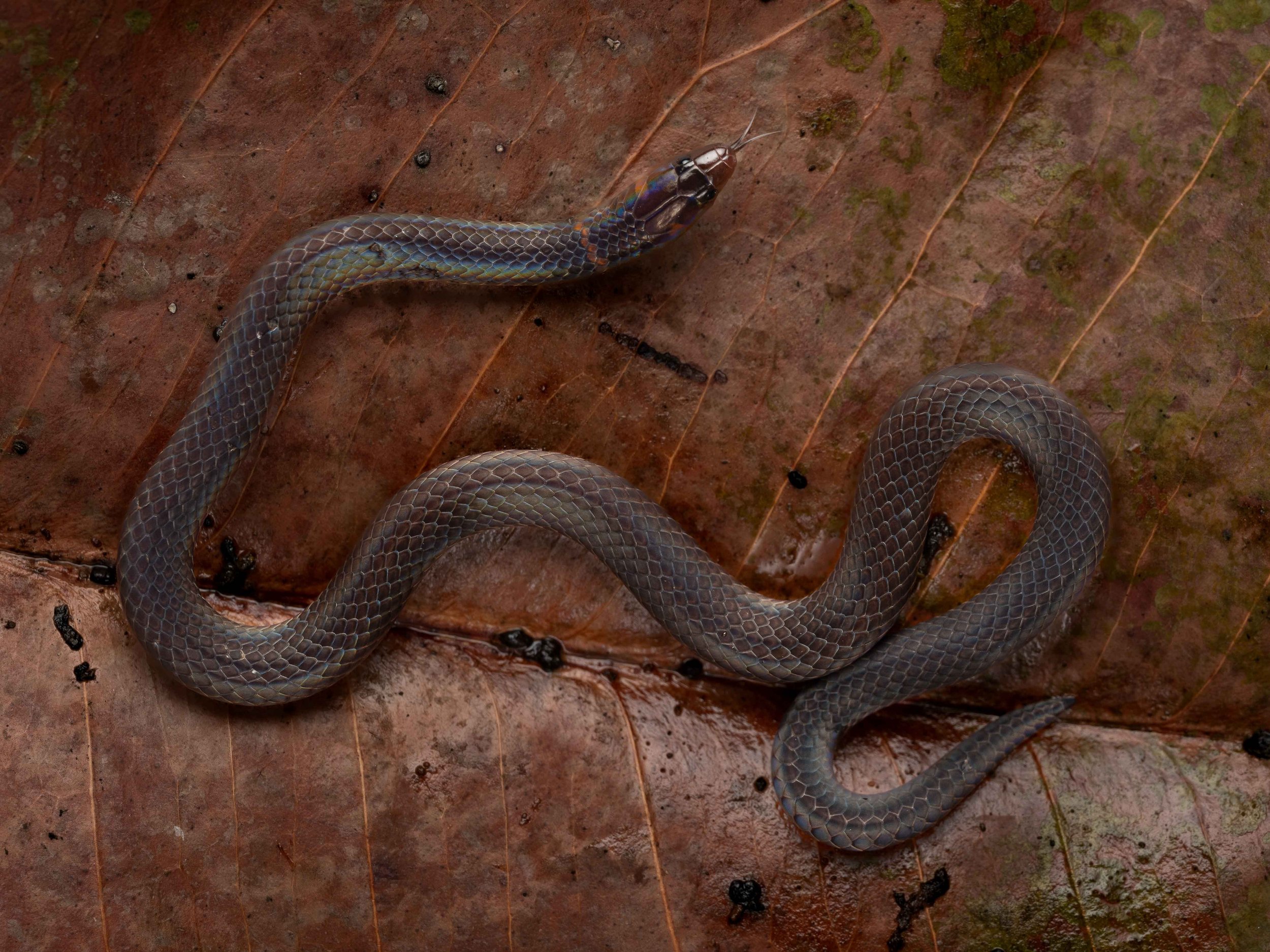
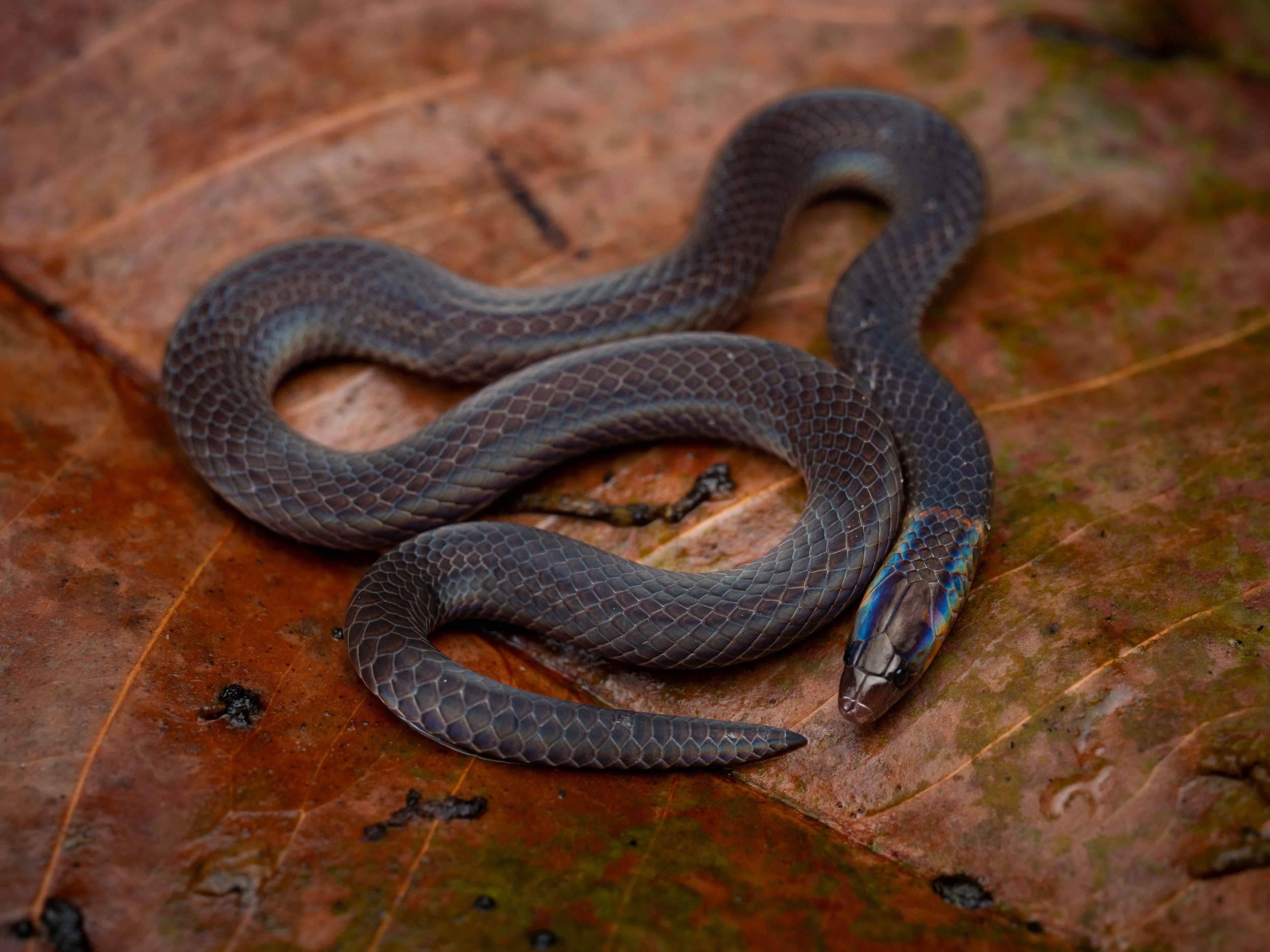
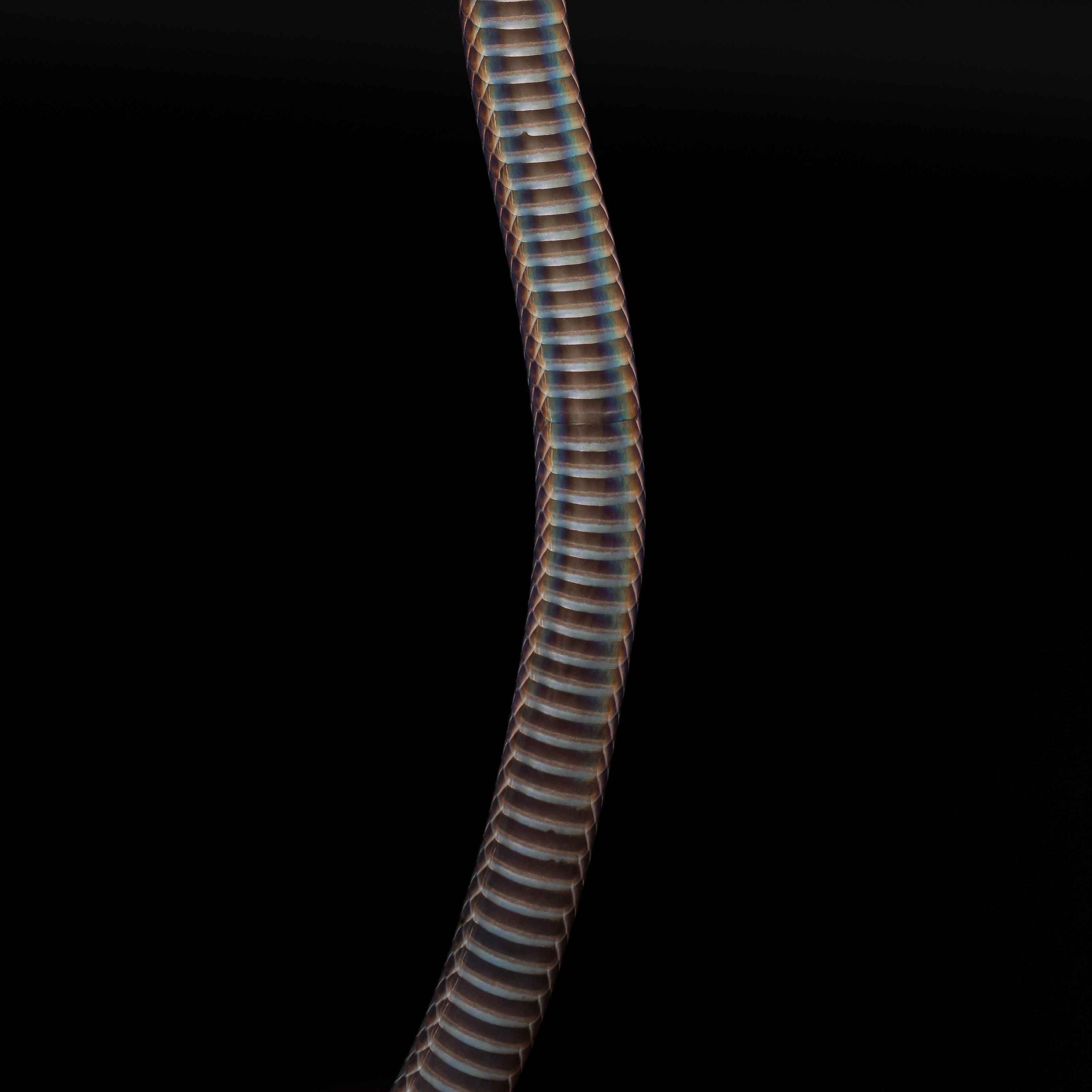
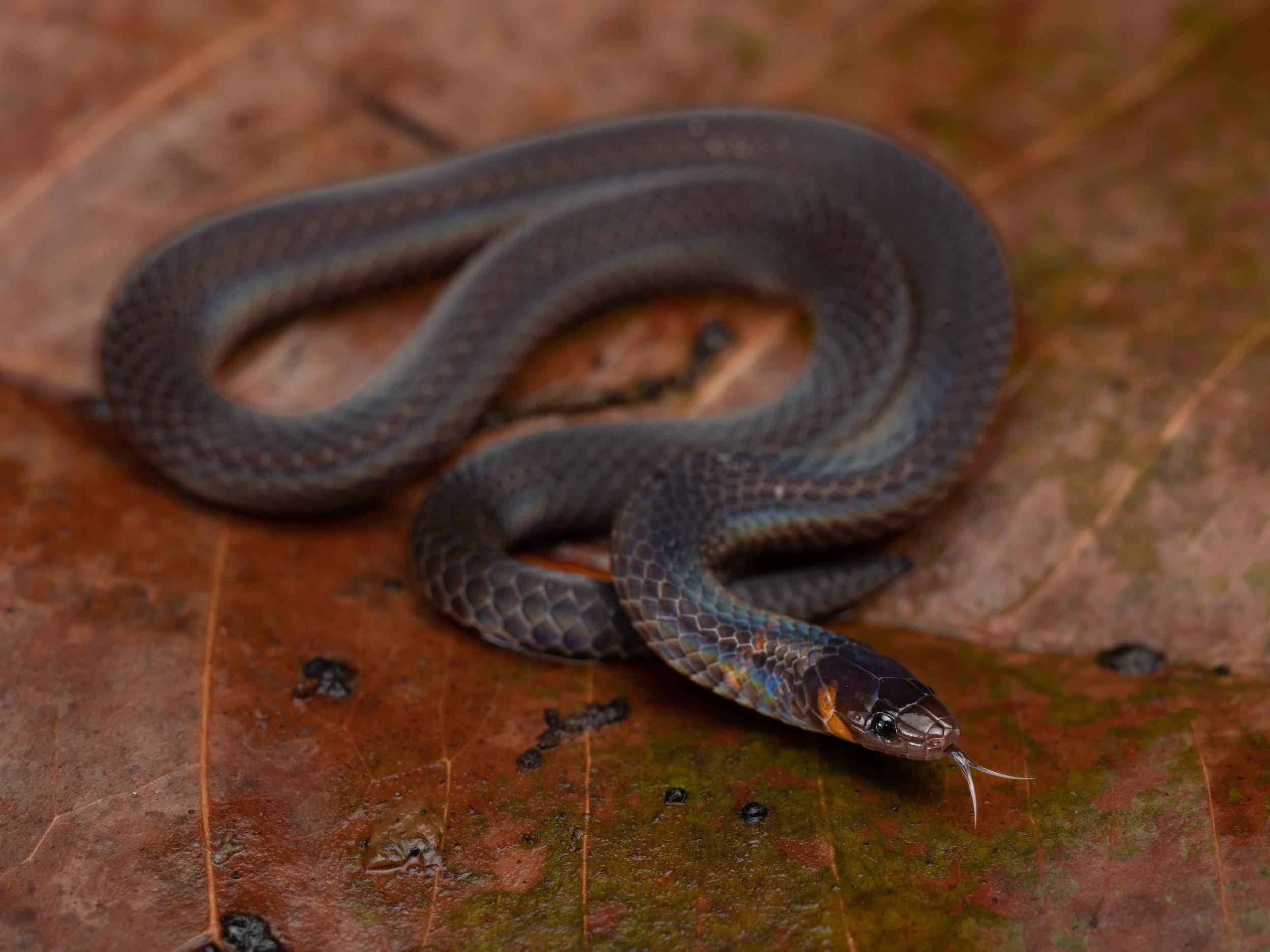
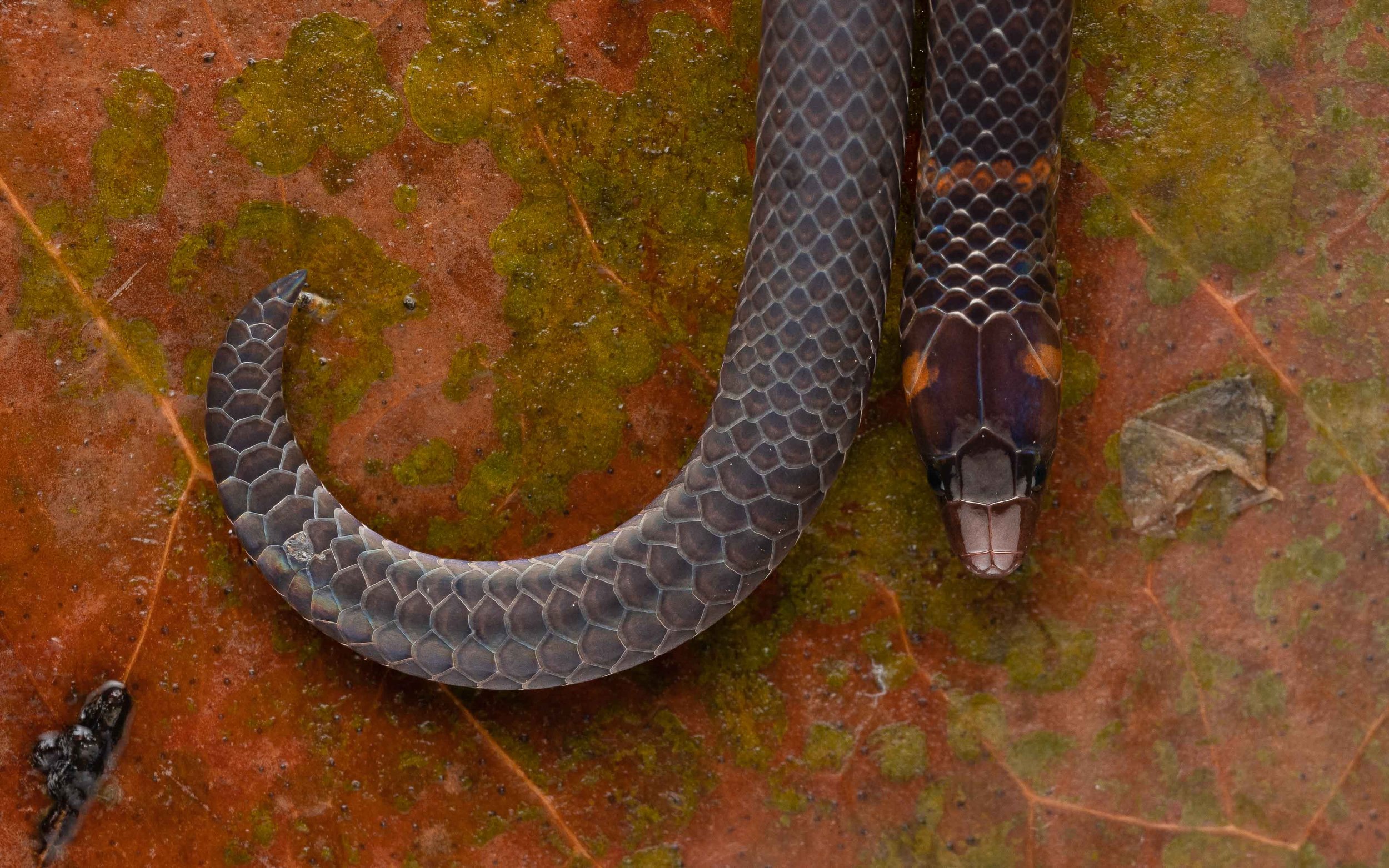
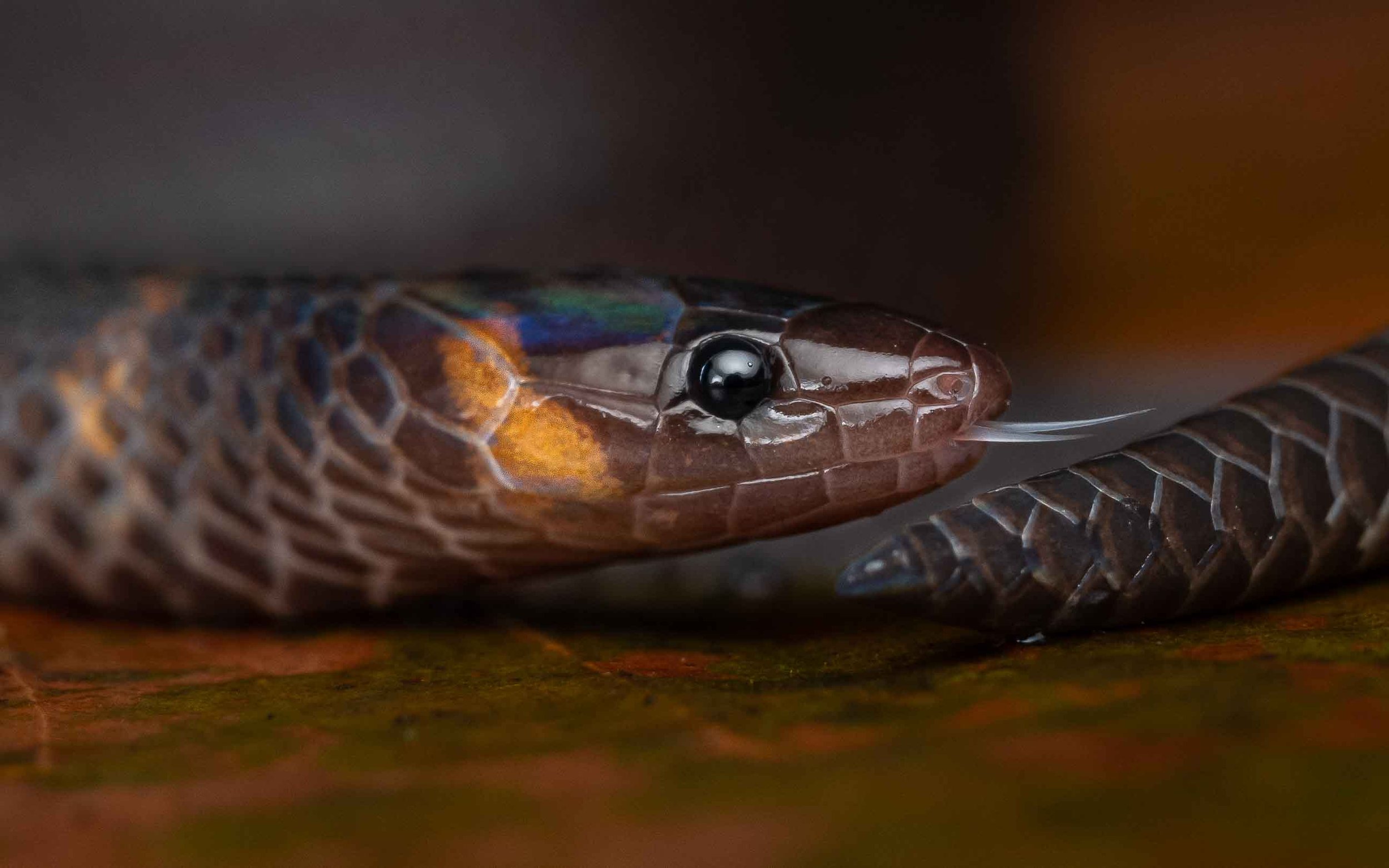
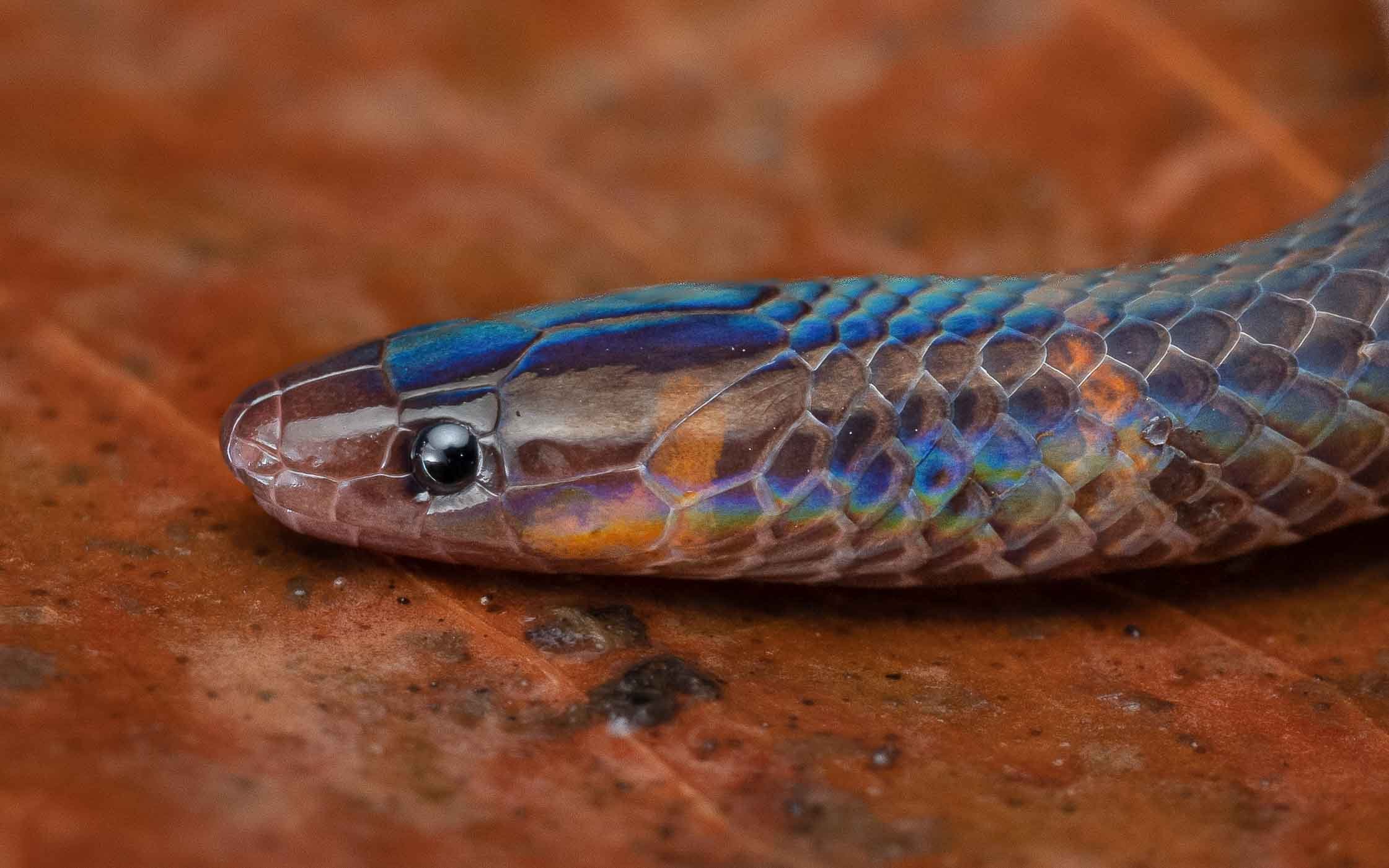
DESCRIPTION
The Dwarf Reed Snake is a cryptic species and is rarely encountered despite being widespread. It spends all its time under ground. They have cylindrical bodies with no distinct necks or tails. The head is small and pointed. The neck has two to four orange spots. The tail is indistinct from the head and neck and is thought to act as a decoy. It also very short and pointed just like the head. The belly scales are the same color as the body. Body color is dark grey with an iridescent shine.
BEHAVIOR
Not much is known about the behavioir of this species but they are known to be fossorial spending almost all of thier time under ground, in leaf litter or under rocks and logs. They may occasionally come out during heavy rain or when moving through locations not suitable for burrowing. They eat insect larva and earth worms. Very docile with small mouths, they are not known to bite aggressively but if they do there is little cause for concern given their dimunitive size. They will knot themselves around potential predators if grabed.
HABITAT
Found in more heavily vegitated areas. Assumed to live in leaf litter and underground. Very elusive, small and well camouflaged.
MISTAKEN IDENTITY
NO SNAKE SHOULD EVER BE HANDLED BY ANYONE BUT EXPERTS: More often confused for earth worms than other snakes due to its size and dimensions.

